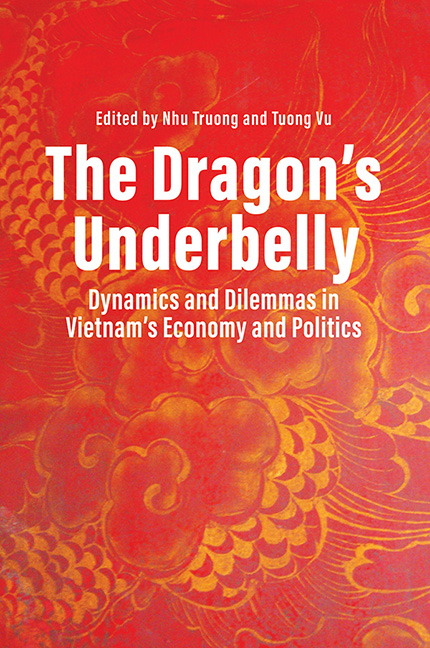Chapter 3 - Global Value Chains and Vietnam’s Economic Development: A Path to Perils or Prosperity?
Published online by Cambridge University Press: 09 January 2024
Summary
The Sixth National Congress of the Vietnamese Communist Party (VCP) was an important milestone in Vietnam’s development path as it marked the significant transformation of the Vietnamese economy. With the economic reform of Doi Moi (Renovation) in 1986, Vietnam transitioned to a socialist-oriented market-based economy. This structural transformation, particularly in trade liberalization and the promotion of foreign direct investment (FDI), facilitated Vietnam’s participation in regional and global production networks or value chains. Participation in the global value chain (GVC) benefited the country in various ways, including enhancing its capabilities and competitiveness, improving its product quality, bringing financial stability, and expanding its markets (Korwatanasakul and Warunsiri 2020, p. 1). As a result of participating in the GVC, Vietnam—once one of the world’s poorest countries—reached an average growth rate of nearly 7 per cent in the period from 1990 to 2019, which is one of the highest growth rates in the world, and it became a lower-middle-income country in 2010 (World Bank 2020). Moreover, GDP per capita increased almost thirteenfold from US$210 in 1989 to US$2,700 in 2019 (World Bank 2020). The reform also attracted a large amount of FDI into the country: Vietnam’s FDI net inflows rose sharply from US$0.18 billion in 1990 to US$15.5 billion in 2018 (World Bank 2020).
In 2021, the 13th National Congress may mark another turning point in Vietnamese history. Despite the past economic success, the slowdown of growth has signalled to the VCP the need for another major structural transformation after thirty-five years of Doi Moi reform. In a fast-changing world, the economic policies implemented in the past (e.g., the focus on labour-intensive activities) are unlikely to apply to the current market environment and conditions. While enjoying the benefits of the GVC, Vietnam is continuing over time to lose competitiveness in its strategic industries. Without a well-planned economic strategy, the benefits from GVC participation may be illusory and leave the country with structural stagnation, particularly in terms of innovation and technological development.
This study provides a novel analysis through the lens of the GVC framework and empirical data of trade in value-added to examine issues related to the dilemma of development and global integration in Vietnam.
- Type
- Chapter
- Information
- The Dragon's UnderbellyDynamics and Dilemmas in Vietnam's Economy and Politics, pp. 73 - 107Publisher: ISEAS–Yusof Ishak InstitutePrint publication year: 2022



